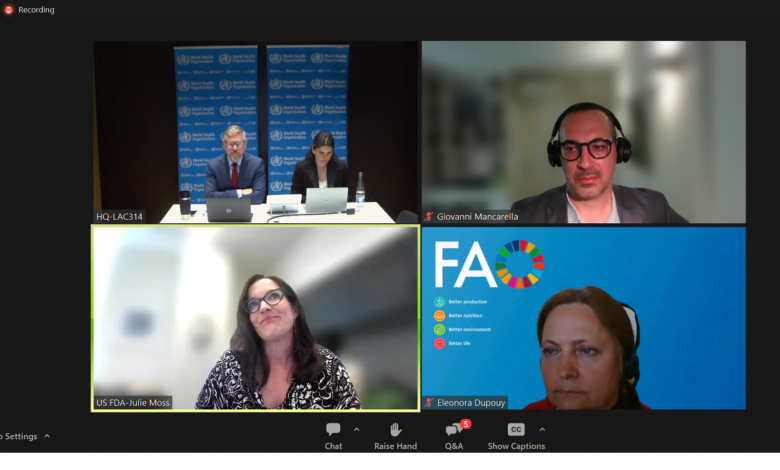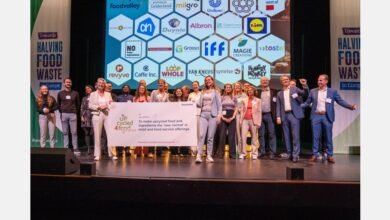WHO webinar recognizes INFOSAN anniversary

According to webinar speakers, a global food safety network has played a vital role in sharing information about food incidents in the past two decades.
A webinar was held this week to mark the 20th anniversary of the FAO/WHO International Food Safety Authorities Network (INFOSAN).
INFOSAN is also part of the WHO Alliance for Food Safety and will help the group to support countries in building their surveillance systems. The Alliance for Food Safety held its first meeting in Geneva in May.
In 2024, the World Food Safety Day campaign on June 7 focused on the theme “Food safety: prepare for the unexpected.”
Rachelle El Khoury of INFOSAN said: “This year’s theme underscores the critical importance of being proactive and adaptable in the face of emerging food safety challenges. INFOSAN helps WHO member states identify and address food safety risks early, ensuring emergency preparedness.”
El Khoury said INFOSAN membership has grown from 215 in 2013 to more than 800 in 2024.
“This expansion reflects the growing global recognition of the importance of international food safety cooperation. INFOSAN is present in 189 WHO member states; we still need to cover five more countries,” she said.
“INFOSAN’s achievements over the past two decades stand as a testament to the importance of international collaboration and communication to ensuring food safety around the globe. The network continues to lead the way in building a more responsive community to food safety emergencies, protecting communities from the impact of foodborne illnesses.”
Fragile and vulnerable food safety
Eleonora Dupouy, FAO food safety officer, cited figures from the WHO Foodborne Disease Burden Epidemiology Reference Group (FERG), published in 2015, that foodborne infections caused 600 million illnesses and 420,000 deaths in 2010. Figures will be updated in 2025, but estimates will be based on a time series analysis, starting in 2000. This means they will not be for one specific year but will show a trend.
“Food safety is vulnerable to the impact of trends such as increasing populations and food demand, urbanization, migration, and to rapid changes in agri-food systems, such as the circular economy, new food production systems, methods, processes, sources and practices, and ways of food distribution, storage, and consumption,” she said.
“Food safety is fragile and can be compromised by biological, chemical, and physical hazards, a changing climate, extreme weather events and disasters such as droughts, floods, and storms or by accidents such as blackouts and nuclear power incidents. The most severe risks we may face in the next decade are rapid technological evolution, economic crises, geopolitical instability, tensions, and conflict, with sudden events often impossible to predict.
“All these risks present immense challenges and huge pressure on the operation of national food control systems and food businesses. To ensure food safety, we need to anticipate the kind of events that might occur to minimize the risk. We have to be prepared for known threats and for the unknown. Being ready for the unexpected requires anticipation, preparedness, large volumes of different types of data, exchange of information, and effective communication.”
Value of data
Julie Moss, director of CFSAN’s Office of International Engagement, said there was a need to use data in risk management to prioritize activities and available resources better.
“Within our risk management functions, data drives everything we do. We use data for risk assessment purposes, risk management, root cause investigations, and all of our prevention activities, as well as prioritizing work plans,” she said.
“If there is an outbreak, we want to do everything we can to prevent it from happening again. In the past several years, we have started to look back to discover why an outbreak occurred and prevent it from happening again. Data will inform our regulatory actions, decision-making, and trend analysis we do, and uncover issues such as enoki mushrooms, which were new to us in the United States. We need to figure out how this commodity grew to understand why outbreaks occurred.
“For the FDA to press a firm for a product recall or to issue a public health communication implicating a product, we rely on lines of evidence to confirm that food as the vehicle is about the outbreak investigation. We have epidemiological, laboratory, and traceback information that will inform the agency on how to act regarding an outbreak situation.”
(To sign up for a free subscription to Food Safety News, click here.)
Source link




